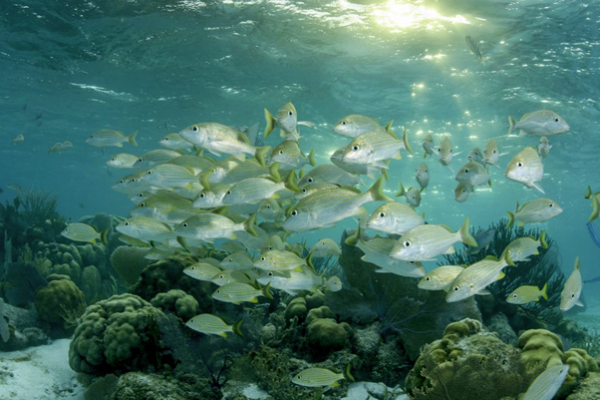Age matters when determining how to protect life in the ocean; every population needs a strong cohort of adults to produce the next generation. But many marine protected areas (MPAs) are falling short of their most basic purpose: to rebuild struggling fish populations. In a new study published in Global Change Biology, scientists looked at the age breakdown of reef fish in marine protected areas for the first time. They discovered in almost all of them, adult fish populations have either flatlined or declined.
“Adult fish are really important,” said Steve Canty, marine ecologist with the Smithsonian Environmental Research Center and a lead author of the study. “They are the primary catch within commercial fisheries that support livelihoods and food security of coastal communities. Additionally, it is the adults that breed and rebuild the fisheries, and here size matters. Bigger and older female fish produce more and better eggs, and therefore are critical to rebuilding fish populations.”
The scientists examined adult versus juvenile fish biomass in 139 reef sites—111 protected and 28 unprotected in the Mesoamerican Reef which stretches more than 1000 kilometres along the Caribbean coasts of Belize, Guatemala, Honduras and Mexico. Only 24% of the protected areas were either fully or highly protected.
Bluestriped grunts swim around a reef in Hol Chan Marine Reserve, Belize. Luciano Candisani /iLCP
The results were troubling. Though marine protected areas exist largely to rebuild fish populations, only 11 sites in the study—8% total—saw significant increases in adult biomass. Most sites saw no change, and 28 sites saw declines. The sites with declines had several things in common: They all had heavy coastal development nearby and experienced high levels of warming in their waters. They were also all in general use zones—the weakest type of marine protected area—and even then had only “inadequate or moderate enforcement.”
“Enforcement plays a big part in how successful some of these areas are,” says Canty. He suggests that local people, whose livelihoods rely on adult fish, should be given a greater role in managing the MPAs. Ensuring that MPAs are placed in areas that are more shielded from climate change and easier to manage is also vital, he says.
To read the full article in Smithsonian magazine click here.
For the full paper published in Global Change Biology click here.
